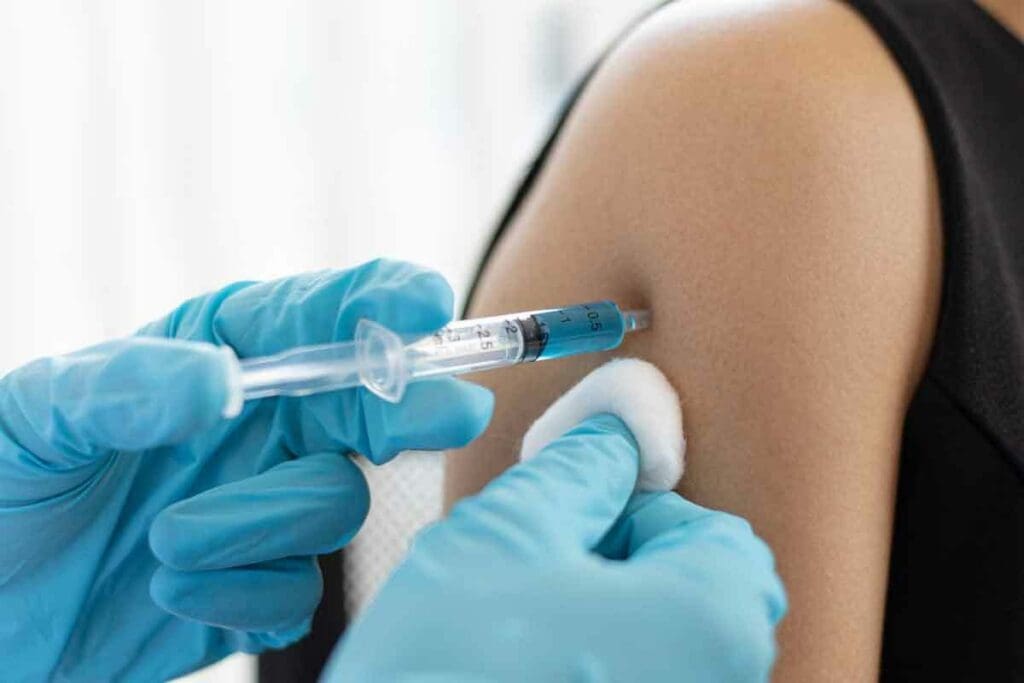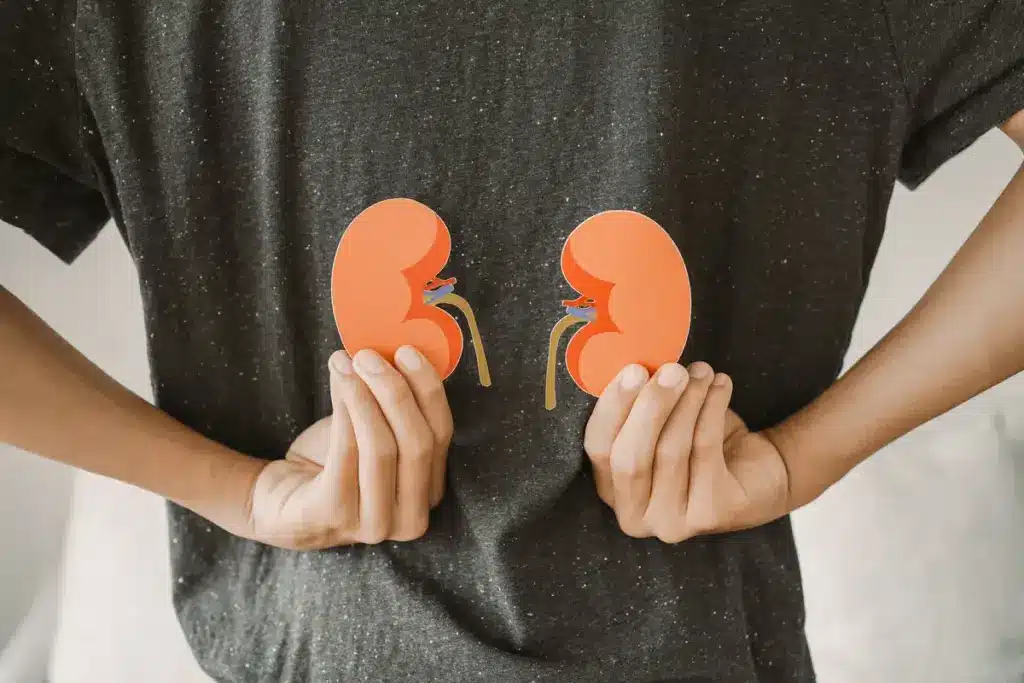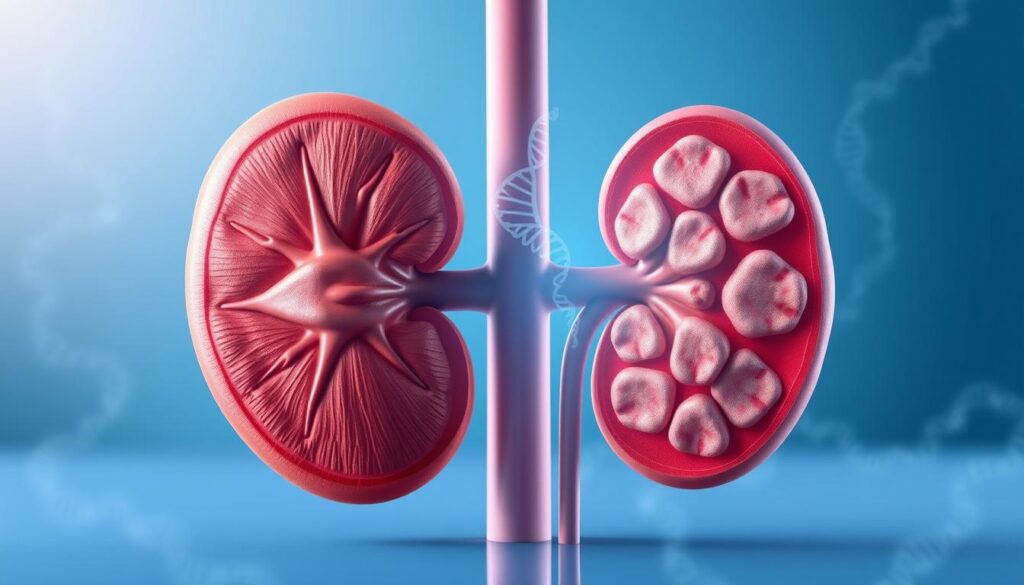
At Liv Hospital, we know how vital personalized treatment plans are for adults needing Vitamin B12 injections. The amount and how often you get these shots depend on how bad the deficiency is and how you get the shots.Understand vitamin B12 injections dosage and frequency for safe, effective treatment and energy boost.
Usually, a treatment plan means getting shots often to quickly boost B12 levels. We’ll look at the key guidelines for Vitamin B12 injections. This includes the best ways to treat mild, severe, and dual deficiencies.
Key Takeaways
- Knowing the right dosage and how often to get shots is key for good treatment.
- The severity of the deficiency decides how much and how often you get shots.
- Personalized treatment plans are key for the best health.
- Liv Hospital sticks to trusted international standards for Vitamin B12 injections.
- Getting shots often is usually needed to quickly raise B12 levels.
Understanding Vitamin B12 Deficiency and Treatment Necessity

Vitamin B12 injections are needed because of a deficiency. This vitamin is key for making red blood cells, nerve function, and DNA. Without enough, you might feel tired, weak, and have nerve problems.
Identifying Clinical Signs of B12 Deficiency
The signs of Vitamin B12 deficiency can be tricky to spot. They include:
- Fatigue and weakness
- Shortness of breath
- Pale or yellowish skin
- Neurological changes, such as numbness or tingling in the hands and feet
These symptoms can really affect your life. That’s why finding and treating the problem quickly is so important.
When Injections Are Medically Indicated
People with certain issues might need B12 injections. This includes:
- Pernicious anemia
- Crohn’s disease or celiac disease
- Gastric surgery or gastrointestinal disorders
For mild deficiency, starting with 1,000 mcg of Vitamin B12 weekly is common. This helps quickly fix the problem and ease symptoms.
Benefits of Injectable vs. Oral B12 Supplementation
Injectable Vitamin B12 has big advantages over taking it by mouth. These benefits are:
- Rapid replenishment of Vitamin B12 stores
- Bypassing the digestive system, ensuring direct delivery into the bloodstream
- Higher bioavailability compared to oral supplements
It’s best to talk to a doctor about the right treatment. This includes the Vitamin B12 injections dosage and how often to get them.
Essential Guideline #1: Standard Dosage Ranges for Adult B12 Therapy

Understanding the standard dosage ranges for Vitamin B12 injections is key for adults. Knowing the normal dose is important for both healthcare providers and patients. It helps ensure safe and effective treatment.
Normal Dose of B12 Injection for Adults (100-1,000 mcg)
The normal dose for adults ranges from 100 mcg to 1,000 mcg. This range lets healthcare providers adjust the dose based on each patient’s needs. A dose of 1,000 mcg is often used, mainly for severe cases or initial treatment.
For more information on Vitamin B12 deficiency and treatment, check out the National Center for Biotechnology Information. They offer detailed insights into diagnosing and treating Vitamin B12 deficiency.
Understanding Dosage Measurements in mcg and ml
Vitamin B12 injections are measured in micrograms (mcg) or milliliters (ml). Knowing that 1 ml equals 1,000 mcg is critical. This ensures accurate dosing and avoids errors.
Factors Affecting Individual Dosage Requirements
Several factors can change the needed dosage for Vitamin B12 injections. These include the deficiency’s severity, underlying medical conditions, and how well the patient responds to treatment. For example, those with severe deficiencies might need 1,000 mcg weekly, while others might only need 100 mcg monthly.
| Condition | Initial Dose | Maintenance Dose |
| Mild Deficiency | 100 mcg weekly | 100 mcg monthly |
| Moderate Deficiency | 500 mcg weekly | 500 mcg every 2 weeks |
| Severe Deficiency | 1,000 mcg daily for a week | 1,000 mcg monthly |
By knowing these factors and dosage ranges, healthcare providers can customize Vitamin B12 therapy. This ensures effective treatment and reduces the risk of side effects.
Essential Guideline #2: Initial Treatment Protocols for Mild Deficiency
For adults with mild Vitamin B12 deficiency, the first treatment phase is key. We suggest starting with a 1,000 mcg dose given weekly. This amount helps to fill up Vitamin B12 stores and ease symptoms of mild deficiency.
Starting Dose of 1,000 mcg Weekly
The first dose of 1,000 mcg weekly is a common start. This dose is given through an intramuscular injection, which helps the body absorb it better. This method quickly boosts Vitamin B12 levels, fixing the deficiency.
Duration of Initial Treatment Phase
The first treatment phase can last a few weeks to a few months. It’s important to check how well the treatment is working during this time. Clinical evaluations and lab tests help us see if the treatment is effective and if we need to make changes.
Monitoring Response to Initial Therapy
We watch for signs of improvement in symptoms and lab results. We look for better energy, brain function, and blood counts. Regular check-ups are vital to make sure the treatment is on track and to handle any side effects.
By sticking to this initial treatment plan, we can manage mild Vitamin B12 deficiency in adults well. The main thing is to keep up with treatment and watch closely for the best results.
Essential Guideline #3: Intensive Treatment for Severe B12 Deficiency
For those with severe Vitamin B12 deficiency, a strong treatment plan is needed. Severe cases need quick action to boost Vitamin B12 levels and ease symptoms.
Daily 1,000 mcg Dosing for First Week
The first step is giving 1,000 mcg of Vitamin B12 daily for a week. This fast start helps quickly fix B12 levels in those with severe symptoms.
Transitioning to Weekly Administration
After the first week, we switch to weekly injections of 1,000 mcg. How long this lasts depends on how well the patient responds and the severity of the deficiency. This keeps B12 levels up.
Clinical Markers for Treatment Effectiveness
We watch for signs of success by checking clinical markers. These include better blood counts, reduced neurological symptoms, and overall health. Regular check-ups are key during this time.
It’s vital to watch for any bad reactions during this intense treatment. We adjust the treatment if needed. Our aim is to get Vitamin B12 levels right while avoiding side effects.
By sticking to this detailed treatment plan, doctors can manage severe Vitamin B12 deficiency well. The focus is on making the treatment fit each patient’s needs and keeping a close eye on how they’re doing.
Essential Guideline #4: Vitamin B12 Injections Dosage and Frequency for Maintenance
To keep Vitamin B12 levels up, a good maintenance plan is key. This plan helps keep Vitamin B12 levels steady. It makes sure the benefits of the first treatment last longer.
Standard Maintenance Dose
The usual dose for Vitamin B12 injections is 1,000 mcg every month. This amount keeps Vitamin B12 levels just right in the body.
Key Considerations for Standard Maintenance Dose:
- Frequency: Monthly injections are standard for maintenance.
- Dosage: 1,000 mcg is the typical dose for most adults.
- Administration: Intramuscular (IM) injections are commonly used.
Individualized Maintenance Schedules
While most get 1,000 mcg monthly, some may need different schedules. This depends on how severe the deficiency was, how well they respond to treatment, and their health.
| Patient Category | Maintenance Dose | Frequency |
| Standard Patients | 1,000 mcg | Monthly |
| Patients with Malabsorption Issues | 1,000 mcg | Every 2-3 weeks |
| Elderly Patients | 1,000 mcg | Monthly, with regular monitoring |
Long-term Monitoring Requirements
It’s important to keep checking on how well the treatment is working. Blood tests and doctor visits help see if the dose is right.
By making maintenance therapy fit each person’s needs, doctors can help keep Vitamin B12 levels high. This stops deficiency from coming back.
Essential Guideline #5: Intramuscular Administration Protocols
For those with vitamin B12 deficiency, intramuscular injections are a direct and effective treatment. It’s important to follow the right protocols. We’ll cover the key aspects of intramuscular administration, including dosage, proper techniques, and self-administration at home.
B12 Intramuscular Dose Standards
The standard dose of vitamin B12 via intramuscular injection is 1,000 mcg per 1 ml. This dose is used for both initial treatment and ongoing therapy. The exact dose may change based on individual needs and the severity of the deficiency.
Some important points about B12 intramuscular dose standards include:
- The typical dosage range is between 100-1,000 mcg, with 1,000 mcg being the most common for intramuscular injections.
- The volume of the injection is usually 1 ml, which corresponds to the standard concentration of 1,000 mcg/ml.
- Dosage adjustments may be necessary based on patient response and ongoing monitoring.
Proper Injection Techniques and Site Selection
Administering vitamin B12 intramuscularly requires proper technique to ensure effectiveness and minimize discomfort. Here are some guidelines:
- Select an appropriate injection site, typically the deltoid muscle or the gluteal muscle.
- Use a sterile needle and syringe for each injection.
- Insert the needle at a 90-degree angle into the muscle.
- Aspirate slightly to ensure the needle is not in a blood vessel.
- Inject the medication slowly and steadily.
Choosing the right site is key for effective absorption and to reduce the risk of adverse reactions. The deltoid muscle is often used for smaller volumes, while the gluteal muscle can accommodate larger volumes.
Self-Administration Guidelines for Home Use
For patients who need ongoing vitamin B12 injections, self-administration at home can be convenient. We recommend:
- Receiving thorough training from a healthcare professional on proper injection technique.
- Using a clean and stable environment for administration.
- Following the prescribed dosage and schedule strictly.
- Monitoring for any signs of adverse reactions or injection site complications.
- Keeping regular follow-up appointments with their healthcare provider to assess treatment efficacy and adjust the regimen as needed.
By following these guidelines, patients can safely and effectively administer their vitamin B12 injections at home. This helps maintain the treatment regimen that is essential for their health.
Essential Guideline #6: Intravenous B12 Therapy Considerations
For those needing quick vitamin B12, intravenous therapy is best. It’s key in medical settings for fast fixing of B12 levels.
B12 Intravenous Dose Protocols
The usual B12 dose via IV is 1,000 mcg per session. The exact amount depends on the patient’s health, how bad the deficiency is, and the doctor’s advice.
Key considerations for B12 intravenous dosing include:
- Initial dose: 1,000 mcg per infusion
- Frequency of administration: varies based on clinical need
- Monitoring of patient response to adjust dosing as necessary
IV Infusion Methods and Duration
B12 IV infusions are given slowly to avoid side effects. They usually last 30 minutes to an hour.
Important aspects of IV infusion methods include:
- Slow infusion rate to prevent adverse reactions
- Use of appropriate IV equipment to ensure safe administration
- Monitoring of the patient during and after the infusion
Clinical Settings Requiring IV Over IM Administration
Intravenous therapy is used when quick B12 is needed. This is true for severe deficiency or malabsorption issues.
Understanding IV B12 therapy helps doctors choose the best treatment for their patients.
Essential Guideline #7: Specialized B12 Formulations and Combinations
Specialized B12 formulations are key for treating specific vitamin B12 deficiency needs. It’s vital to grasp the differences in various formulations and their uses.
Cyanocobalamin vs. Hydroxocobalamin Dosing Differences
Cyanocobalamin and hydroxocobalamin are two main vitamin B12 injection types. They work well but differ in how they might suit patients. Cyanocobalamin is the most used and given in doses from 100 to 1,000 mcg. Hydroxocobalamin lasts longer, possibly needing less frequent doses. The right choice depends on the patient’s needs and how they react to treatment.
Tiaminal B12 Injection Protocols for Dual Deficiencies
Tiaminal B12 injection helps those with both vitamin B12 and thiamine deficiencies. It combines both vitamins in one shot, making treatment easier for those with multiple deficiencies. Tiaminal B12 injections are given once or twice a week, based on the deficiency’s severity and the patient’s response.
Prescription Requirements for Different B12 Formulations
Prescription needs for B12 formulations vary by type and patient condition. Cyanocobalamin injections are common for standard B12 deficiency treatment. Hydroxocobalamin and Tiaminal B12 might need special prescriptions due to their unique properties. Healthcare providers must know these requirements for proper care.
“The choice of B12 formulation should be guided by the individual patient’s needs and clinical presentation.”
— Expert Consensus on B12 Therapy
In summary, knowing the different B12 formulations and their dosing is key for managing B12 deficiency. By choosing the right formulation for each patient, healthcare providers can better treat and care for them.
Essential Guideline #8: Adjusting Dosage for Special Populations
Vitamin B12 treatment isn’t the same for everyone. Different groups need special care. Doctors must think about many factors when giving Vitamin B12 shots.
Modified Protocols for Elderly Patients
Older adults might need different amounts of Vitamin B12. This is because their bodies change with age. They might not absorb it as well.
A study in the Journal of the American Geriatrics Society showed benefits. Older adults with Vitamin B12 deficiency got better after weekly shots for three months.
Dosage Adjustments for Patients with Malabsorption
People with conditions like celiac disease or Crohn’s disease might need more Vitamin B12. This is because their bodies can’t absorb it well.
Starting with high doses (1,000 mcg to 2,000 mcg) weekly or biweekly is common. Doctors watch how the body responds to adjust the treatment.
Considerations for Patients with Neurological Manifestations
Those with nerve or brain problems from Vitamin B12 lack often need strong treatment. High doses of Vitamin B12 are used to quickly fill up the body’s stores.
They might start with 1,000 mcg daily for a week. Then, they get shots weekly for four weeks, and then less often. It’s important to keep an eye on how they’re doing and their Vitamin B12 levels.
Customizing Vitamin B12 shots for different groups helps doctors get better results. This improves the quality of life for patients.
Conclusion: Ensuring Optimal B12 Therapy Through Proper Dosing
Getting the right dose of Vitamin B12 injections is key for good health. We’ve shared important tips for adults, like the right amount to take and how often. It’s vital to dose correctly to help patients get better.
Doctors need to know the best way to give Vitamin B12 shots. The dose depends on the person’s health. Tailoring the dose to each patient’s needs is important. This way, we make sure they get the best treatment for their Vitamin B12 deficiency.
When treating with Vitamin B12 shots, we must think about each patient’s needs. We also need to watch for any side effects. This careful approach helps us improve health outcomes and overall well-being.
FAQ
What is the normal dose of B12 injection for adults?
Adults usually get 100 to 1,000 mcg of Vitamin B12. The most common dose for treating deficiency is 1,000 mcg.
How often should Vitamin B12 injections be administered for maintenance therapy?
For maintenance, adults get Vitamin B12 injections monthly. The dose is usually 1,000 mcg.
What is the difference between cyanocobalamin and hydroxocobalamin B12 injections?
Cyanocobalamin and hydroxocobalamin are both Vitamin B12 forms used in injections. Cyanocobalamin is more common and has a shorter body retention. Hydroxocobalamin has a longer retention and is used for specific patient needs.
Can Vitamin B12 injections be self-administered at home?
Yes, Vitamin B12 injections can be given at home. But, patients need training from a healthcare provider on how to do it right.
What are the clinical signs that indicate the need for Vitamin B12 injections?
Signs that may mean you need Vitamin B12 injections include fatigue, weakness, and neurological changes. Also, megaloblastic anemia is a sign.
How is the dosage of Vitamin B12 injections determined for individual patients?
The dosage depends on several factors. These include the severity of deficiency, patient age, and malabsorption issues. It also depends on how the patient responds to the initial therapy.
What is the protocol for treating severe Vitamin B12 deficiency with injections?
For severe deficiency, patients get 1,000 mcg daily for the first week. Then, they get weekly injections until they start to get better.
Are there any specialized B12 formulations for dual deficiencies?
Yes, there are specialized B12 injections like Tiaminal B12. They are for patients with dual deficiencies, combining Vitamin B12 with other nutrients.
How is the effectiveness of Vitamin B12 injection therapy monitored?
The therapy’s success is checked by looking at clinical markers. These include better anemia, neurological symptoms, and Vitamin B12 levels in the blood.
Can intravenous B12 therapy be used, and when is it indicated?
Intravenous B12 therapy is used in certain cases. This includes severe malabsorption or when injections in the muscle are not possible. It’s given at a dose of 1,000 mcg per infusion.
References:
- Bo, Y., et al. (2020). Association Between Folate and Health Outcomes: An Umbrella Review of Meta-Analyses. Frontiers in Public Health, 8, 550753. https://pmc.ncbi.nlm.nih.gov/articles/PMC7770110/









